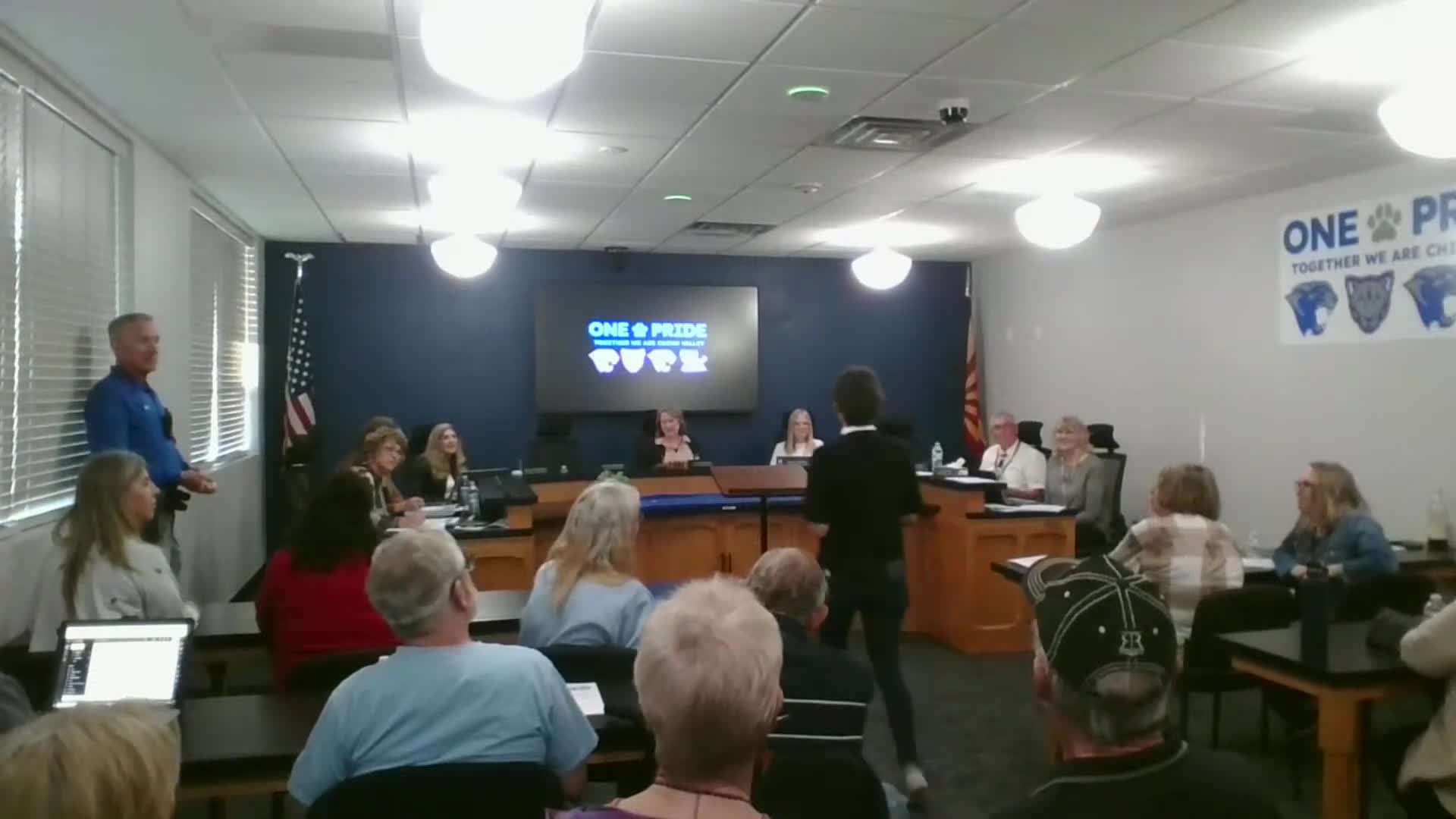Residents urge Chino Valley board to protect teacher’s off-duty speech amid calls for dismissal
Get AI-powered insights, summaries, and transcripts
Subscribe
Summary
Several residents told the school board they oppose potential discipline or termination of a teacher over private social media posts, citing First Amendment protections and court rulings.
Multiple residents used the meeting’s public-comment period on Oct. 1 to ask the Chino Valley Unified School District board not to discipline or fire a teacher over private social-media posts.
Why it matters: Commenters said disciplinary action would chill free expression for teachers, risk legal challenges and worsen an existing educator shortage in Arizona.
Reverend Sabrina Jennings of the United Church of Christ told the board that free speech “should never be taken away” and argued a teacher posting on private social media was exercising constitutionally protected speech. Barbara Kulp, a former teacher who said she had taught autistic students, described the teacher as “a great teacher” and warned that termination would deprive the district of experienced staff and might bring negative publicity or legal action.
Several speakers referenced court precedent. Grace Kinney cited Pickering v. Board of Education (1968) and a Ninth Circuit decision, Eric Dodge v. Evergreen School District (2022), saying those rulings support protection for teachers who speak as private citizens on matters of public concern unless speech is knowingly false or causes substantial disruption.
Mike Vogel, identified as a former board member and educator, called the post a target of “a modern day witch hunt” and said firing the teacher would be a “textbook wrongful termination case,” urging the board to avoid action that would risk litigation.
Speakers asked the board to apply due process and to judge the teacher by classroom performance rather than private, lawful expression. The board did not take disciplinary action during the meeting; the comments were part of the call-to-the-public period.
The teacher named during public comment was identified in speakers’ remarks as Carrie (last name in comments pronounced as Zambrano). Speakers said she is an award-winning teacher; the district did not announce any personnel action at the meeting.
Quotes in this article are attributed to meeting participants recorded in the transcript.
